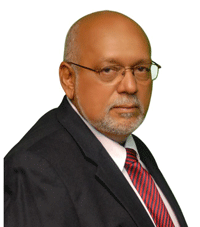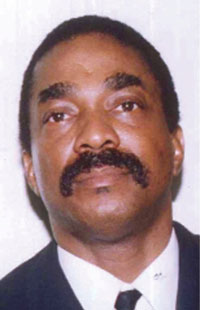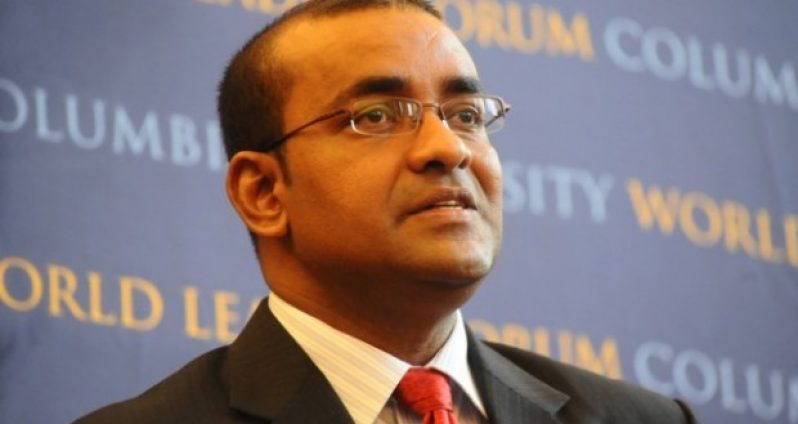By Ariana Gordon
Former Presidents Donald Ramotar and Bharrat Jagdeo have moved to the High Court over the non-payment of money and other benefits they would have been entitled to prior to the capping of the benefits of former presidents.

This was announced by Attorney General and Minister of Legal Affairs Basil Williams on Monday who told the media that he will be seeking leave to defend the applications filed on November 11. Both Ramotar and Jagdeo are seeking to claim money, benefits and other facilities that have been capped under the Former Presidents (Benefits and other Facilities) Act (No. 3 of 2015).
“They are now challenging the Act and contend that their earnings had accrued before the passage of the Act and so they are entitled to continue to be able to receive those tremendous earnings and benefits still,” said the Minister of Legal Affairs. Represented by Murseline Bacchus, both applicants are begging the court to declare an order that the Former Presidents (Benefits and Other Facilities) Act (No.3 of 2015) does not retrospectively affect their benefits under the Former

Presidents (Benefits and Other Facilities) Act of 2009 after they demitted office before the coming into operation of the new legislation; that the 2009 legislation “provisionally vested in the applicant’s property rights” when they assumed the Office of the President on December 3, 2011 and August 11, 1999 respectively and as such benefits became “absolute” when they demitted office on the May 16, 2015 and December 3, 2011 respectively before the coming into operation of the Former Presidents (Benefits and other Facilities) Act No. 3 of 2015; that the applicants are entitled to receive benefits conferred on them as former presidents under the 2009 Act within a reasonable time after demitting office.
Ramotar and Jagdeo are also seeking an order compelling Minister of Finance, Winston Jordan and or the Commissioner General Guyana Revenue Authority (GRA) Khurshid Sattaur and or their agents to “forthwith provide the applicant(s) the financial benefits conferred” by the 2009 Act.
The Applicants’ arguments are that Section 2 of the 2009 Act has conferred absolutely on them vested rights, which are protected by articles 142 and 222 of the Constitution and are so being deprived of those rights by the state.
In sworn affidavits to support their applications both Ramotar and Jagdeo claim that the Former Presidents (Benefits and Other Facilities) Act 2015 will “be used to deny me my benefits which have been conferred upon me by the 2009 Act and any attempt to do so will be unlawful, unconstitutional, null, void and of no effect and an attempt to violate my constitutional rights under Article 142 of the Constitution and my rights under the Act and Article 142 of the Constitution is being or is likely to be contravened by the Act No. 3 of 2015.”
Additionally, both former presidents state that when they demitted office, they held “a substantial legitimate expectation that the property rights conferred and vested in them by Section 2 of the Former Presidents (Benefits and Other Facilities) Act 2009 would have been made available to them within a reasonable time. A reasonable time the duos claim has elapsed since that Act was enforced.
But the Legal Affairs Minister is questioning why the two former presidents failed highlight their applications to the media. “The question is really whether this country could afford uncapped benefits for former Presidents which could amount to hundreds of millions annually,” said Williams who asked, “…But you have to ask why since these Applications were filed in November it wasn’t brought to the media.”
In July, the APNU-AFC led coalition government amended the Former Presidents (Benefits and other facilities) Act 2009 following failed attempts during the 10th Parliament to have the former presidents benefits capped while in opposition. The then opposition had used its one seat majority to vote for the Amendment but though passed President at the time Donald Ramotar failed to assent to the legislation.
The People’s Progressive Party (PPP) through former Attorney General Anil Nandlall had argued that ex-Presidents cannot lose their benefits as the Constitution assures them of the right to property, salary and other benefits.
Under the new legislation, former presidents will receive $25,000 per month for electricity, a further $25,000 for water and another $25,000 for telephone. They will also be given services of personal and household staff, including a gardener but, the total number of such staffers cannot exceed three persons. A limit of $200,000 per annum will be provided for reimbursement of medical expenses incurred by a former president, his children below the age of 18 and his spouse provided that money was not spent on medical attention at a private institution here or treatment occurred abroad.
Former Presidents are also entitled to no more than two full-time security personnel at their place of residence; no more than two motor vehicles owned and maintained by the state; toll free transportation and an annual vacation allowance equivalent to the cost of two first class return airfares on conditions likened to judges of the Supreme Court of Judicature.
Though the benefits of the former presidents have been capped, they will lose entitlement to the benefits and other facilities if they engage in business, trade or paid employment or if convicted of a criminal offence to which they will be imprisoned.
The matters will be heard by Chief Justice Ian Chang and Justice Narendra Singh on December 11, where the Minister of Legal Affairs will seek leave to defend the applications filed against the State.



.jpg)











